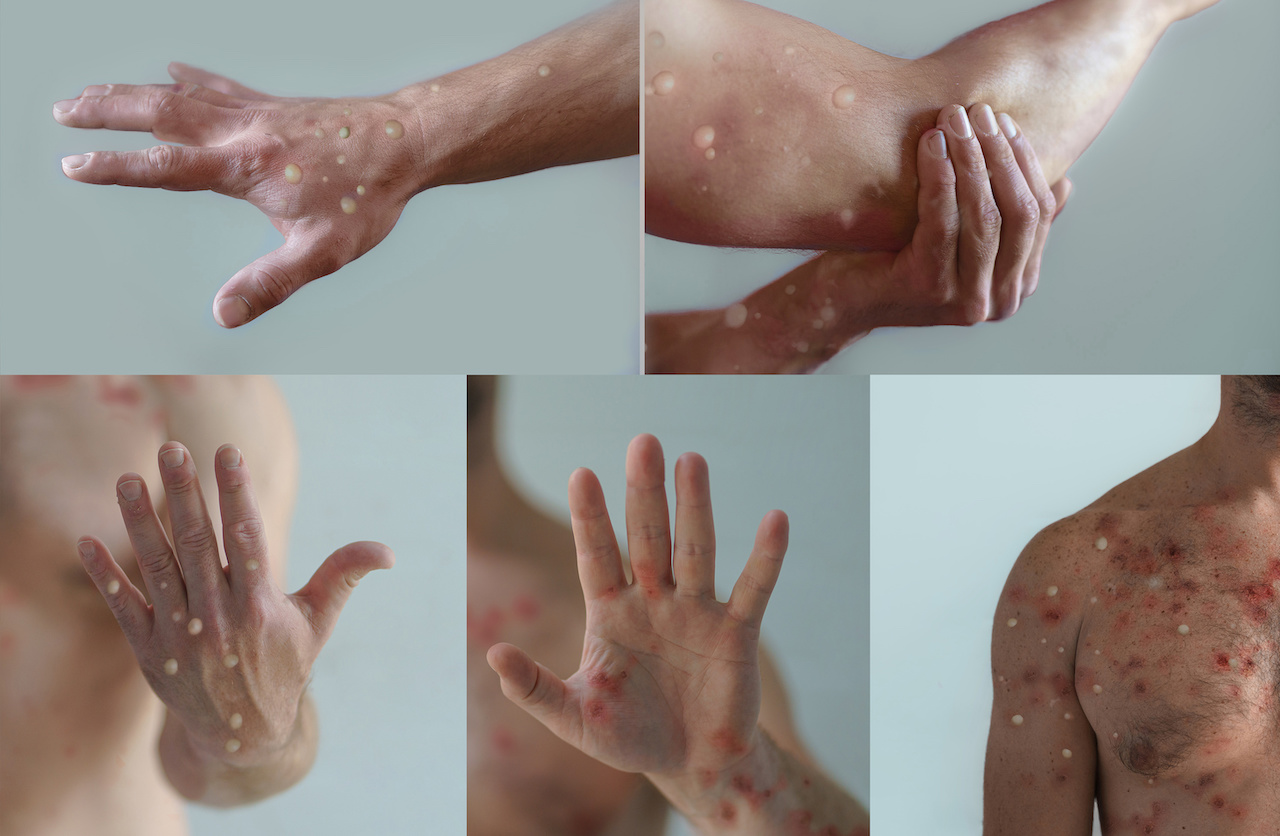
Hello, #MedicalMoguls! It’s me, Dr. Drai. The US declared a state of emergency over Monkeypox. Let’s review the basics of this disease so we can keep ourselves and our employees safe.
- What is MonkeyPox?
Monkeypox is a disease caused by the monkeypox virus. Monkeypox virus comes from the same virus family that causes smallpox. It’s a zoonotic virus which means it spreads from animals to humans. Monkeypox was first discovered in the 1950s when an outbreak occurred in Monkeys in a research lab. Humans can transmit this virus to other humans as well. The first human case of Monkeypox occurred in 1970. There are 2 types of MonkeyPox viruses- West African & Congo Basin. The current outbreak is being caused by the West African type. The first US case of Monkeypox occurred on May 18, 2022, confirmed in a man from Massachusetts.
- What are some symptoms & signs of MonkeyPox?
The symptoms & signs of MonkeyPox include a rash on the face, genitals, mouth, hands, feet, chest, & anus. The rash can look like spots, pimples, blisters, and then scabs. The lesions can hurt and they can be itchy. Fever, chills, swollen lymph nodes, being tired, muscle aches, headaches, sore throat, nasal congestion, or cough can also occur. 1 to 4 days after the fever occurs, a skin rash starts. Sometimes a fever doesn’t occur.
- How long will symptoms of MonkeyPox last?
The symptoms of MonkeyPox start within 21 days of exposure. The Monkeypox virus can spread from the time symptoms occur until the rash has healed. In other words, you are contagious until the rash has completely healed; new skin must be covering the area where the blister & scab were. The symptoms usually last 2-4 weeks.
- How does MonkeyPox spread?
MonkeyPox is spread through skin-to-skin contact with the rash (including a rash inside of the mouth & nose possibly anus and vagina) or body fluids like blood & semen. Sex, Hugging, Cuddling, & Kissing is can spread monkeypox as well. Monkeypox is also spread through touching objects that are infected with the virus-like bedding, clothing, or towels & respiratory secretions- prolonged face-to-face contact (more than 4 hours). Being bitten by infected animals and/or eating meat or using products from an infected animal can spread this virus. MonkeyPox can also be passed to the fetus in pregnancy.
- How do you prevent MonkeyPox?
You should avoid close skin-to-skin contact with people who have monkeypox. Avoid touching objects that may have been used by people with the monkeypox virus. Isolate from people with monkeypox. Always wash your hands. Avoid animals that may carry the virus. Limit sexual partners, wear gloves, wear a face mask, & wear condoms. You should also get vaccinated.
- What is the treatment of MonkeyPox?
Relieving symptoms is the main goal of treatment. Pain management with ibuprofen and acetaminophen. Hydration with water is important. Antivirals like Tecovirimat TPOXX or Brincidofovir (Tembexa) can be prescribed by your doctor. Taking Oatmeal baths, isolating from others, and Covering lesions are recommended. You should also wear Masks and avoid contact with pets.
- When should you get tested for MonkeyPox?
People who think they have monkeypox or have been exposed should be tested.
- How do you get tested for MonkeyPox?
Your doctor will swab a piece of tissue from an open sore. You also may have a blood sample to check for the virus or antibodies for immunity.
- Is MonkeyPox an STI?
Monkeypox is sexually transmissible. Sex is just one of the many ways that monkeypox can be spread.
- Can you die from MonkeyPox?
Rarely. 1% of people with the West African strain of MonkeyPox will die. 10% of people with the Congo Basin type strain will die.
- Is the vaccine that effective?
We have 2 vaccines on the market- JYNNEOS (a newer vaccine) and ACAM2000 (the original smallpox vaccine). Vaccines used during smallpox also provide protection against monkeypox. More research is being done about the effectiveness of these vaccines.
- Who should get vaccinated?
People with close contact with the MonkeyPox virus, have had sex partners with monkeypox in the past 2 weeks, or have had multiple sexual partners within 2 weeks in a known area with Monkeypox should be vaccinated. Lab workers who handle animals with poxviruses that pose an infection risk to humans should be vaccinated. People who are pregnant, have eczema, weakened immune systems should not be vaccinated.
- What are some complications of monkeypox?
Severe permanent scarring & hypo/hyperpigmentation of the skin, pneumonia, sepsis, blindness, infections in the brain & spinal cord, rarely death
Please be careful #MedicalMoguls.


